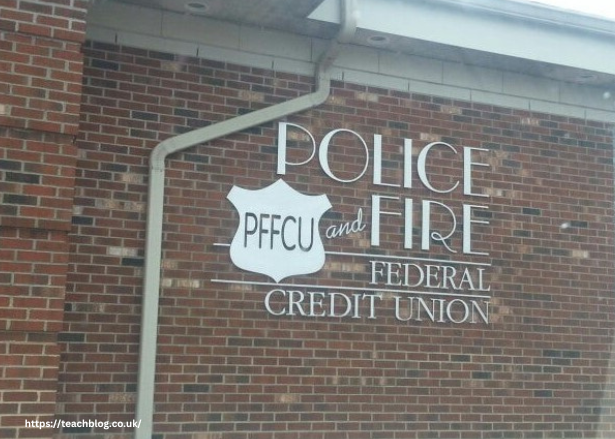Choosing the right credit union, especially for those in public service, is crucial for effective financial management. Police and fire credit unions offer a range of services designed specifically for the needs of law enforcement officers, firefighters, and their families. These specialized institutions provide unique benefits such as lower fees, higher interest rates, and personalized financial services that cater to the unique lifestyle of public safety professionals. Here are some tips for choosing the right police and fire credit union, with a focus on understanding their Annual Percentage Yield (APY) offerings and Individual Retirement Accounts (IRAs).
Table of Contents
Understanding Police and Fire Credit Unions
Police and fire credit unions are not-for-profit financial institutions established to serve the financial needs of police officers, firefighters, and their families. Unlike traditional banks, which are driven by profit and have shareholders, credit unions are member-owned cooperatives. This structure often allows credit unions to provide better terms on loans, lower fees, and higher interest rates on savings accounts.
Key Features of Police and Fire Credit Unions
- Member-Centric Services: Because they are not-for-profit, police and fire credit unions focus on returning profits to their members in the form of lower loan rates, higher savings rates, and fewer fees.
- Tailored Financial Products: These credit unions often provide financial products and services that cater specifically to the needs of public safety professionals, such as specialized loan options, savings plans, and insurance products that take into account the unique risks associated with their jobs.
- Community Focused: Police and fire credit unions are typically community-focused and committed to serving the specific needs of their members, often providing financial education and outreach programs.
Tips for Choosing the Right Credit Union
When selecting the right police and fire credit union, consider the following factors:
- Eligibility Requirements: Most police and fire credit unions require membership eligibility. This can be based on your occupation, employer, or sometimes your family relationship to a current or retired law enforcement officer or firefighter. Ensure you meet these requirements before applying.
- Location and Accessibility: Consider the physical and digital accessibility of the credit union. Does it have branches near your home or workplace? Is there a user-friendly online banking platform and mobile app? Accessibility is crucial for managing your finances efficiently, especially for public safety professionals who often work irregular hours.
- Fee Structure: Compare the fee structures of different credit unions. Look for those with low or no fees for account maintenance, ATM use, and other services. Credit unions typically have fewer and lower fees than traditional banks, but it’s still essential to review these costs.
- Customer Service and Support: Choose a credit union known for excellent customer service. As a member, you should expect prompt, friendly, and knowledgeable assistance whether you’re visiting a branch, calling, or using online banking services.
- Financial Education and Resources: Some credit unions offer financial education resources, including seminars, webinars, and one-on-one financial counseling. These resources can be invaluable in helping you make informed financial decisions.
Understanding APY in Police and Fire Credit Unions
The Annual Percentage Yield (APY) is a critical factor when choosing a savings account or certificate of deposit (CD) at a police and fire credit union. The APY indicates the amount of interest you can earn on your deposit accounts, such as savings accounts, checking accounts, and CDs, over a year, taking compounding into account.
What to Know About APY
- Higher APY Rates: Credit unions often offer higher APY rates on savings accounts and CDs compared to traditional banks. This is because credit unions return profits to their members rather than distributing them to shareholders.
- Comparing APY Rates: It’s essential to compare APY rates between different credit unions and financial institutions. Even a slight difference in APY can significantly impact your earnings, especially for long-term savings.
- Interest Compounding Frequency: Understand how frequently interest is compounded. Interest can be compounded daily, monthly, or annually, and more frequent compounding means more interest earned.
- Balance Requirements: Some accounts offer a higher APY but require a minimum balance. Make sure you understand these requirements and choose an account that aligns with your financial situation.
Police and Fire Credit Unions and IRA Accounts
Individual Retirement Accounts (IRAs) are an essential part of retirement planning, and many police and fire credit unions offer a variety of IRA options. Understanding these options and how they can benefit you is crucial for long-term financial security.
Types of IRAs
- Traditional IRAs: Contributions to a traditional IRA may be tax-deductible, which means you can potentially lower your taxable income. The earnings in a traditional IRA grow tax-deferred, meaning you won’t pay taxes on the earnings until you withdraw the money, typically in retirement.
- Roth IRAs: Contributions to a Roth IRA are made with after-tax dollars, meaning you don’t get a tax deduction upfront. However, the benefit of a Roth IRA is that your earnings grow tax-free, and qualified withdrawals in retirement are also tax-free.
- IRA Certificates: Some credit unions offer IRA certificates, similar to CDs, which provide a fixed rate of return over a specified period. These can be a good option for those looking for a stable, predictable investment for their retirement funds.
Tips for Choosing the Right IRA
- Understand Your Retirement Goals: Before choosing an IRA, consider your retirement goals and current financial situation. Are you looking for immediate tax benefits, or are you more interested in tax-free income in retirement?
- Compare Fees and Rates: Just like with regular savings accounts, compare the fees and rates associated with IRAs at different credit unions. Look for credit unions that offer competitive rates and low fees.
- Review Contribution Limits and Penalties: Be aware of the contribution limits and potential penalties for early withdrawals from IRAs. These factors can affect how much you save for retirement and how flexible your funds are in case of an emergency.
- Seek Professional Advice: If you’re unsure which IRA option is best for you, consider seeking advice from a financial advisor who understands the specific needs of public safety professionals.
Conclusion
Choosing the right police and fire credit union is a crucial decision that can significantly impact your financial well-being. By carefully considering the factors mentioned above, you can select a credit union that offers the best benefits for your specific needs, including competitive APY rates and suitable IRA options. Always take the time to research and compare different credit unions to ensure you make an informed choice that supports your financial goals, both now and in the future.



















